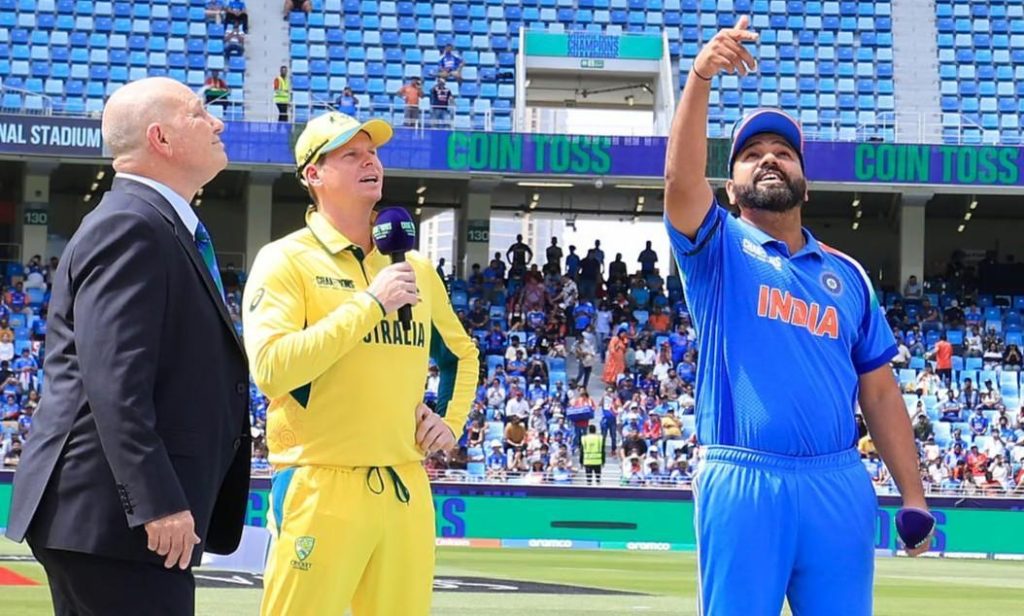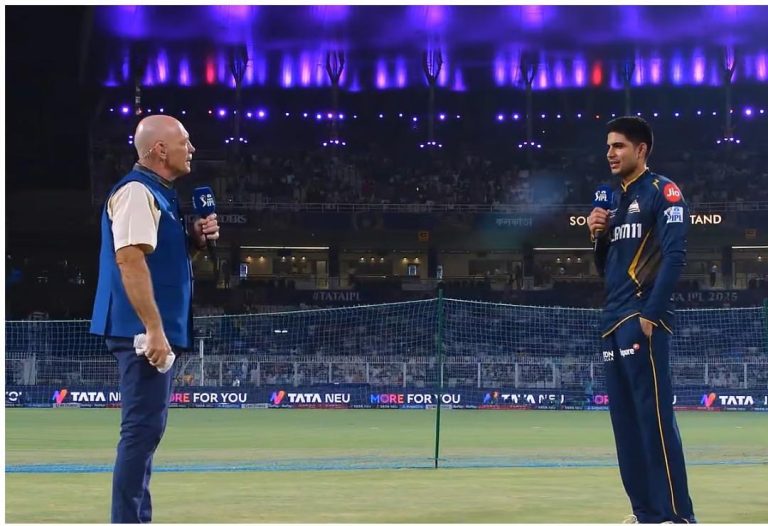
Better to lose when you are in two minds: Rohit Sharma on toss
Rohit Sharma, the captain of the Indian cricket team, has been experiencing a streak of bad luck when it comes to the toss. In the ongoing Champions Trophy semi-final clash against Australia, Rohit lost his 11th straight toss, which has become a topic of concern for the team. However, in a surprising turn of events, Rohit has come out and spoken about his feelings on the matter, stating that it’s actually better to lose when you’re in two minds.
When Australia skipper Steve Smith elected to bat, Rohit seemed to be in agreement, saying, “I was prepared to do both…The wickets at this venue have played differently over the last three matches. So, when you are in two minds it is better to lose…toss.” This statement has raised eyebrows, as it’s not every day that a captain admits to being indecisive about the toss.
Rohit’s statement has sparked a debate among cricket enthusiasts, with some questioning his strategy and others defending his decision. So, what does it mean to be in two minds when it comes to the toss, and is Rohit’s approach a viable one?
Firstly, it’s essential to understand the importance of the toss in cricket. The winner of the toss gets to decide whether to bat or bowl first, which can significantly impact the outcome of the match. In the Champions Trophy, the team that wins the toss often gets the advantage of batting first, as the pitch tends to become easier to bat on as the game progresses.
In the context of Rohit’s statement, it seems that he was genuinely unsure about the conditions at the venue. The wicket has played differently over the last three matches, which could have made it challenging for him to make a decision. By saying that he was prepared to do both, Rohit is implying that he was equally comfortable with either option.
However, some critics might argue that Rohit’s approach is too laid-back and that he should have been more decisive. After all, as the captain of the team, it’s his responsibility to make tough decisions and take the reins. Perhaps Rohit’s indecisiveness is a result of the pressure that comes with being the captain of a team like India.
On the other hand, Rohit’s approach could be seen as a sign of his adaptability and willingness to adapt to changing circumstances. By acknowledging that the wicket has played differently, he is showing that he is willing to think on his feet and adjust his strategy accordingly. This could be seen as a sign of maturity and a willingness to learn from his mistakes.
In conclusion, Rohit Sharma’s statement about losing the toss has sparked a debate about the importance of decisiveness in cricket. While some might argue that he should have been more decisive, others might see his approach as a sign of adaptability and willingness to learn. Ultimately, the outcome of the match will depend on how the team performs, and not on the toss.
As the Indian team takes on Australia in the semi-final clash, it will be interesting to see how they adapt to the conditions and whether Rohit’s approach pays off. One thing is for sure, however – Rohit’s honesty about his feelings on the matter has sparked a lively debate, and it will be fascinating to see how this plays out in the coming days.






